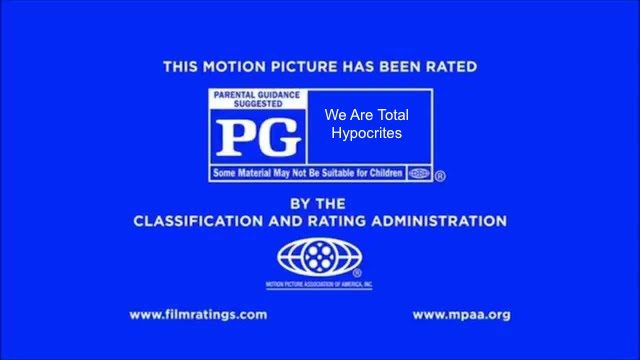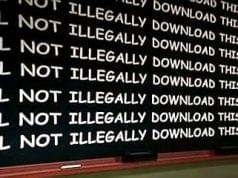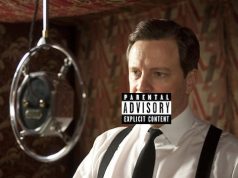
The MPAA rating system is totally screwed up, as everyone other than the MPAA itself knows. Savvy moviegoers have figured out the bizarre system of morality employed by the MPAA and have learned to disregard it as irrelevant at best, misleading at worst.
For example, the MPAA will allow all manner of violence and explosions in a PG-13 movie as long as it’s mostly non-graphic, i.e., bloodless. In other words, it’s OK for kids to see loads of violence; we just don’t want them seeing the actual consequences of violence. For that you get an R rating.
Sex and nudity, on the other hand, are totally taboo. “The Cooler,” infamously, was given an NC-17 rating simply because Maria Bello’s pubic hair was slightly visible during a sex scene. (That’s the actual reason the MPAA gave the filmmaker.) Yet again, the standard is applied erratically. Nudity and sexual activity are liable to get you an R, but you can stay within the PG-13 range as long as your characters only talk about sex and make raunchy jokes and behave crudely.
That’s as long as they avoid using the F word, of course. You can get away with two or three of those in a PG-13 movie, unless you use it in its literal, verb sense. If you do that, you get an R rating, even if you only use it once — unless your movie is called “Anchorman” or “The Jane Austen Book Club” or “My Best Friend’s Wedding” or “Notting Hill,” in which case you can use it in the literal, verb sense and still be PG-13.
The problem is that the MPAA claims to have parents in mind, yet they prove time and time again that they have no clue how parents think. “Once,” the charming Irish musical from last year, was rated R for a few dozens uses of the F word, as was the marvelous “Billy Elliot” back in 2000. Aside from that, both are perfectly lovely, uplifting, joyous films, with no sex, nudity, or violence. Yet “Anchorman” and the Austin Powers movies, with their rampant innuendo, vulgarity, and randiness, are rated PG-13. Can the MPAA seriously believe that parents would rather let their kids watch “The Spy Who Shagged Me” than “Billy Elliot”? Does someone honestly think that the former is more suitable than the latter simply because it doesn’t happen to use one particular swear word?
The MPAA insists that everyone is treated equally and fairly, and that (for example) independent films aren’t judged any more harshly than big-studio films. They state it boldly on their website: “There has never been even the slightest jot of evidence that the rating system has deliberately fudged a decision or bowed to pressure.” I guess they’re pretending not to have seen Kirby Dick’s “This Film Is Not Yet Rated,” a slam-dunk dossier of MPAA double standards, inconsistency, and general hypocrisy, a film that is crammed with evidence that the rating system has deliberately fudged a decision or bowed to pressure — routinely and habitually, in fact.
How else to explain the PG-13 rating for the violence-and-nudity-heavy “Beowulf,” or the persistently violent “Pirates of the Caribbean: At World’s End”? Dave Chen posted a great dissection of some recent MPAA missteps on his blog, More Than Fine, and he cites “Pirates” as an example. The film begins with a scene of mass hangings, including one of a child, and is rife with death and murder thereafter, some of it rather gross. Chen includes a YouTube compilation of all the film’s deaths so you can see for yourself.
So how did it get a PG-13 rating? Because it was Disney! I earnestly believe that if this had been an independent film with a bunch of no-name actors, the MPAA would have given it the much more sensible rating of R. But because it was a huge, influential studio — a studio that happens to be an official member of the MPAA (along with Sony, Paramount, Fox, Universal, and Warner Bros.) — they went along with what the studio wanted.
Unfortunately, all the complaining about the MPAA won’t have any impact, because the group operates autonomously and secretly, and no one has any authority over them. They don’t have to change a damn thing if they don’t feel like it, and believe me, they don’t feel like it. Watch “This Film Is Not Yet Rated” and see if you don’t come out of it a little more outraged than you were before. I’m still awaiting the MPAA’s response to the film’s charges. I’m not holding my breath, though.
— Film.com




